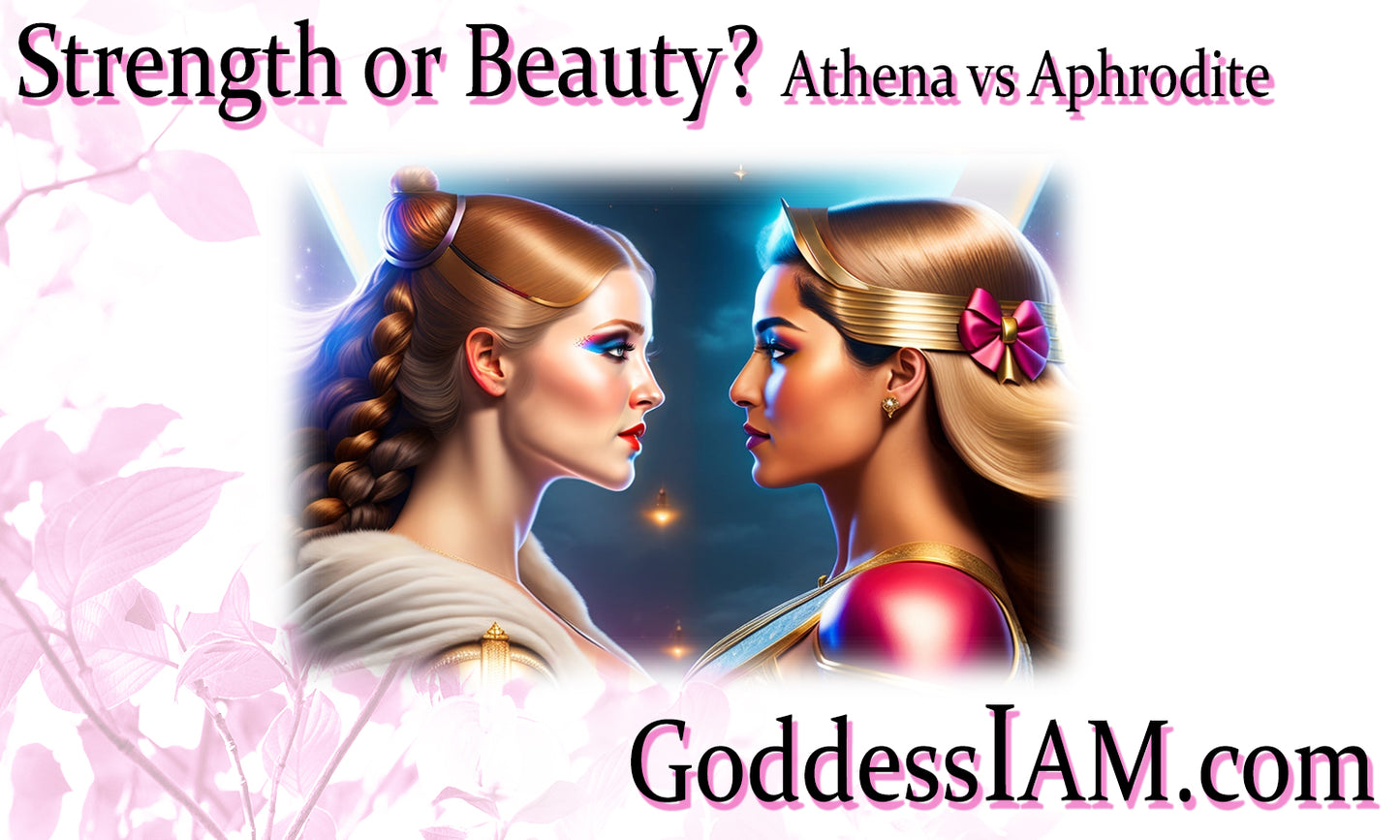
In the realm of ancient mythologies, a profound conflict emerged between the Goddesses of Strength and the Goddesses of Beauty, each embodying contrasting ideals that resonated with humanity in unique ways.
Among the Goddesses of Strength stood Athena, the resplendent Greek deity born from the head of Zeus. Athena epitomized wisdom, courage, and strategic prowess. Her teachings emphasized the strength that comes from knowledge, resilience, and the ability to navigate challenges with a clear mind. In her mythologies, Athena engaged in battles to defend her city, Athens, and aided heroes with her wisdom. Her followers revered her as a beacon of strength rooted in the power of intellect and inner fortitude.
In stark contrast, the Goddesses of Beauty boasted Aphrodite, the alluring Greek deity born from the sea foam. Aphrodite embodied sensuality, grace, and the captivating allure of physical appearance. Her teachings celebrated the strength found in charm, love, and the ability to inspire passion. Aphrodite's myths often revolved around her captivating influence over gods and mortals, as well as her role in instigating love and desire. Her devotees praised her for the enchantment of aesthetics and the power of attraction.
As time passed, the teachings of Athena and Aphrodite began to intertwine with human perception, often causing conflict between the notions of inner strength and outward beauty. Some saw Athena's wisdom and fortitude as the ultimate form of strength, believing that true power stemmed from resilience and intelligence. Others, however, held Aphrodite's allure in high regard, recognizing the strength that comes from inspiring admiration, sparking love, and influencing hearts.
The conflict between these goddesses reached its zenith during a great assembly of gods and mortals. Athena argued that strength should be based on knowledge, wisdom, and the inner resolve to face adversity. She urged individuals to cultivate their minds, to harness their intellectual capabilities, and to become masters of their destinies through sagacity and strategy.
On the other side, Aphrodite argued that beauty and charm were strengths in themselves. She extolled the virtues of passion, the enchantment of aesthetics, and the ability to captivate hearts. Aphrodite emphasized that beauty could bring joy, inspire love, and open doors to opportunities that otherwise might remain closed.
As the debate raged on, it became clear that both aspects held value. The Goddesses of Strength and the Goddesses of Beauty, instead of being at odds, had complementary teachings. Inner strength and outer beauty were not mutually exclusive; they could coexist and empower each other. The assembly recognized that Athena's wisdom could enhance Aphrodite's allure, and Aphrodite's allure could enhance Athena's influence.
The divine conflict revealed that the path to true empowerment was a synthesis of strength and beauty. The teachings of Athena and Aphrodite were not in conflict, but rather two sides of the same coin, offering diverse avenues to personal growth and fulfillment. The assembly concluded that embracing both inner strength and outer beauty created a harmonious balance, empowering individuals to navigate life's challenges with resilience, wisdom, allure, and the power to inspire love and admiration in the hearts of others.
